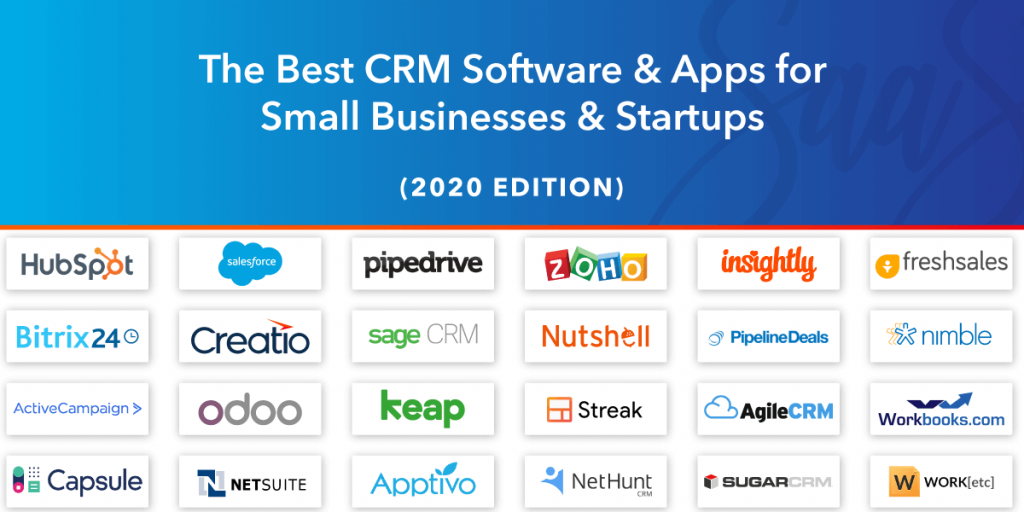Embark on a journey into the realm of great CRM, where we unravel the intricacies of this powerful tool that empowers businesses to forge lasting relationships with their customers. Delving into the core concepts, benefits, and successful implementations of CRM systems, this guide will equip you with the knowledge and insights to elevate your customer interactions to new heights.
As we navigate through the complexities of CRM, we’ll explore the essential features to consider, the importance of user adoption, and the art of data management. Discover the transformative power of CRM integrations and the advantages of embracing mobile CRM.
We’ll also delve into industry-specific CRM requirements and emerging trends that are shaping the future of customer relationship management.
Mobile CRM

Mobile CRM enables sales teams to access and manage customer data, track interactions, and close deals from anywhere, using smartphones or tablets. It offers numerous advantages, including increased productivity, improved customer service, and enhanced collaboration.
Best Practices for Implementing Mobile CRM
- Choose a solution that aligns with your business needs and budget.
- Involve users in the implementation process to ensure adoption.
- Provide comprehensive training to equip users with the necessary skills.
li>Integrate mobile CRM with other business systems for seamless data flow.
Challenges of Mobile CRM and How to Overcome Them
- Security concerns:Implement robust security measures to protect sensitive customer data.
- Data connectivity issues:Ensure reliable internet connectivity for seamless access to data.
- Device compatibility:Choose a solution that supports multiple devices and operating systems.
- Battery life:Provide charging stations or encourage users to carry power banks to avoid battery drain.
CRM for Specific Industries

Customer relationship management (CRM) is a crucial tool for businesses across all industries. However, the specific requirements of CRM solutions can vary significantly depending on the industry in question. This is because each industry has its own unique challenges, processes, and customer touchpoints.
In this section, we will explore the unique CRM requirements of different industries and provide examples of CRM solutions tailored to specific sectors. We will also share case studies of successful CRM implementations in various industries.
Healthcare
The healthcare industry is heavily regulated and requires a CRM solution that can manage patient data securely and efficiently. Additionally, healthcare CRM solutions must be able to track patient interactions, appointments, and medical history. Some examples of CRM solutions tailored to the healthcare industry include Salesforce Health Cloud and Epic.
Manufacturing
Manufacturing companies need a CRM solution that can help them manage their supply chain, track inventory, and forecast demand. Additionally, manufacturing CRM solutions must be able to integrate with other business systems, such as enterprise resource planning (ERP) and product lifecycle management (PLM) systems.
Some examples of CRM solutions tailored to the manufacturing industry include SAP CRM and Oracle Siebel CRM.
Financial Services
Financial services companies need a CRM solution that can help them manage customer relationships, track investments, and provide financial advice. Additionally, financial services CRM solutions must be able to comply with industry regulations, such as the Dodd-Frank Wall Street Reform and Consumer Protection Act.
Some examples of CRM solutions tailored to the financial services industry include Salesforce Financial Services Cloud and Microsoft Dynamics 365 for Financial Services.
Retail, Great crm
Retail companies need a CRM solution that can help them manage customer loyalty, track sales, and provide personalized marketing campaigns. Additionally, retail CRM solutions must be able to integrate with e-commerce platforms and point-of-sale (POS) systems. Some examples of CRM solutions tailored to the retail industry include Salesforce Commerce Cloud and Oracle Retail CRM.
Emerging Trends in CRM
The realm of Customer Relationship Management (CRM) is continuously evolving, driven by technological advancements and changing customer expectations. In this section, we will explore the latest trends shaping the CRM landscape.
Artificial Intelligence (AI)
Artificial intelligence (AI) is revolutionizing CRM by automating tasks, enhancing data analysis, and personalizing customer experiences. AI-powered CRM systems can:
- Automate repetitive tasks such as lead qualification, appointment scheduling, and customer service inquiries.
- Analyze vast amounts of customer data to identify patterns, predict behaviors, and make personalized recommendations.
li>Provide real-time assistance to customers through chatbots and virtual assistants, improving customer satisfaction and reducing response times.
Cloud Computing
Cloud computing is playing a pivotal role in CRM by enabling businesses to access and manage their CRM systems from anywhere, on any device. Cloud-based CRM systems offer several advantages:
- Increased accessibility: Employees can access the CRM system from any location with an internet connection.
- Reduced costs: Businesses can avoid the upfront costs of purchasing and maintaining hardware and software.
- Improved scalability: Cloud-based CRM systems can easily scale up or down to meet changing business needs.
Wrap-Up

In the ever-evolving landscape of business, great CRM stands as an indispensable asset, empowering organizations to cultivate enduring customer relationships. By embracing the principles and strategies Artikeld in this guide, you can unlock the full potential of CRM and transform your customer interactions into a source of competitive advantage.
As technology continues to advance, the future of CRM holds infinite possibilities, and we eagerly anticipate the innovations that will further enhance the customer experience.
Expert Answers: Great Crm
What is CRM?
CRM (Customer Relationship Management) is a strategy and technology that helps businesses manage and track their interactions with customers and potential customers.
What are the benefits of using a CRM system?
CRM systems offer numerous benefits, including improved customer service, increased sales, enhanced marketing effectiveness, and streamlined operations.
What are the key features to look for in a CRM system?
When evaluating CRM systems, consider features such as contact management, sales tracking, marketing automation, customer support, and reporting capabilities.
How can I implement a CRM system successfully?
Successful CRM implementation requires careful planning, a dedicated team, and a comprehensive training program for users.
